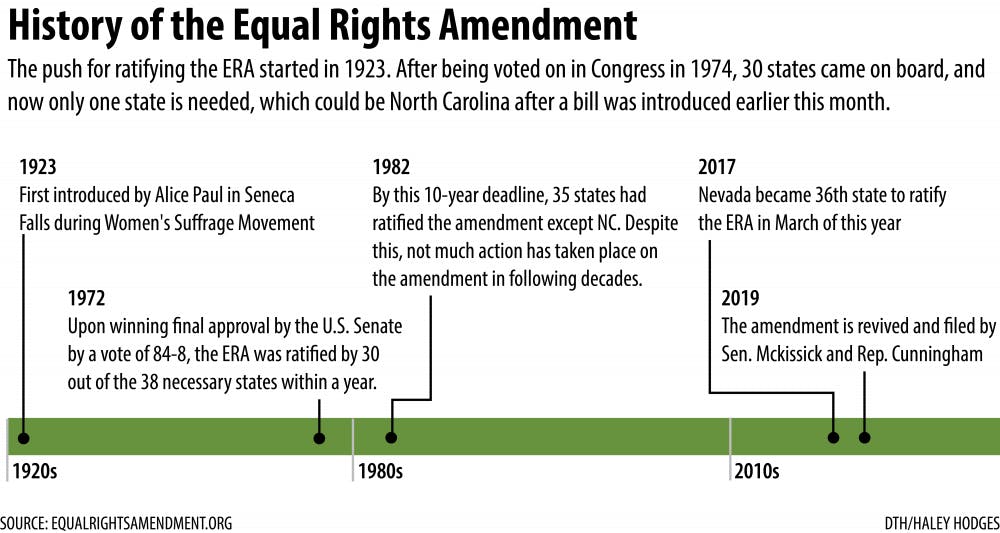North Carolina could be the 38th state to ratify the Equal Rights Amendment, the last state necessary to ratify the bill.
Filed on March 5 by N.C. Sen. Floyd B. McKissick Jr., D-Durham, and N.C. Rep. Carla Cunningham, D-District 106, the ERA intends to guarantee equal protections for both men and women under the law. If ratified, the amendment would also ensure equal pay for women and make sex-based discrimination illegal. The amendment would take effect two years after its ratification date.
“I think it is self-evident that women deserve equal rights in the eyes of the law and equal protections,” McKissick said. “... It is almost inconceivable that this could even be debatable in the year 2019.”
Despite the amendment’s revival, the ERA has been deemed “unfinished business for the constitution” since the women’s suffrage movement.
Initially named the “Lucretia Mott Amendment,” the ERA was first introduced by Alice Paul in 1923. Upon its renaming in 1943, the amendment was rewritten to its current wording: “Equality of rights under the law shall not be denied or abridged by the United States or by any state on account of sex."
The bill was introduced in every session of Congress until it passed both houses with a vote of 84-8 in 1972. Shortly after, the ERA was ratified by 30 of the necessary 38 states within the first year. However, Congress placed a seven-year ratification deadline on the process that was later extended by three years.
“When they saw that the timeline was too close, they asked for an extension which Congress granted for three years and then supposedly, time ran out,” said Marena Groll, co-president of the ERA North Carolina Alliance. “However, there’s several legal questions about that, because if time ran out, why do you see Nevada ratifying it in 2017? And in 2018, Illinois ratified it.”
By 1982, 35 states had ratified the amendment, falling short of the 38 state measure.
“If you get Nevada, that’s 36; you get Illinois, that’s 37,” said Groll. “This leaves one more state to push the question back into the national constitutional spotlight.”



